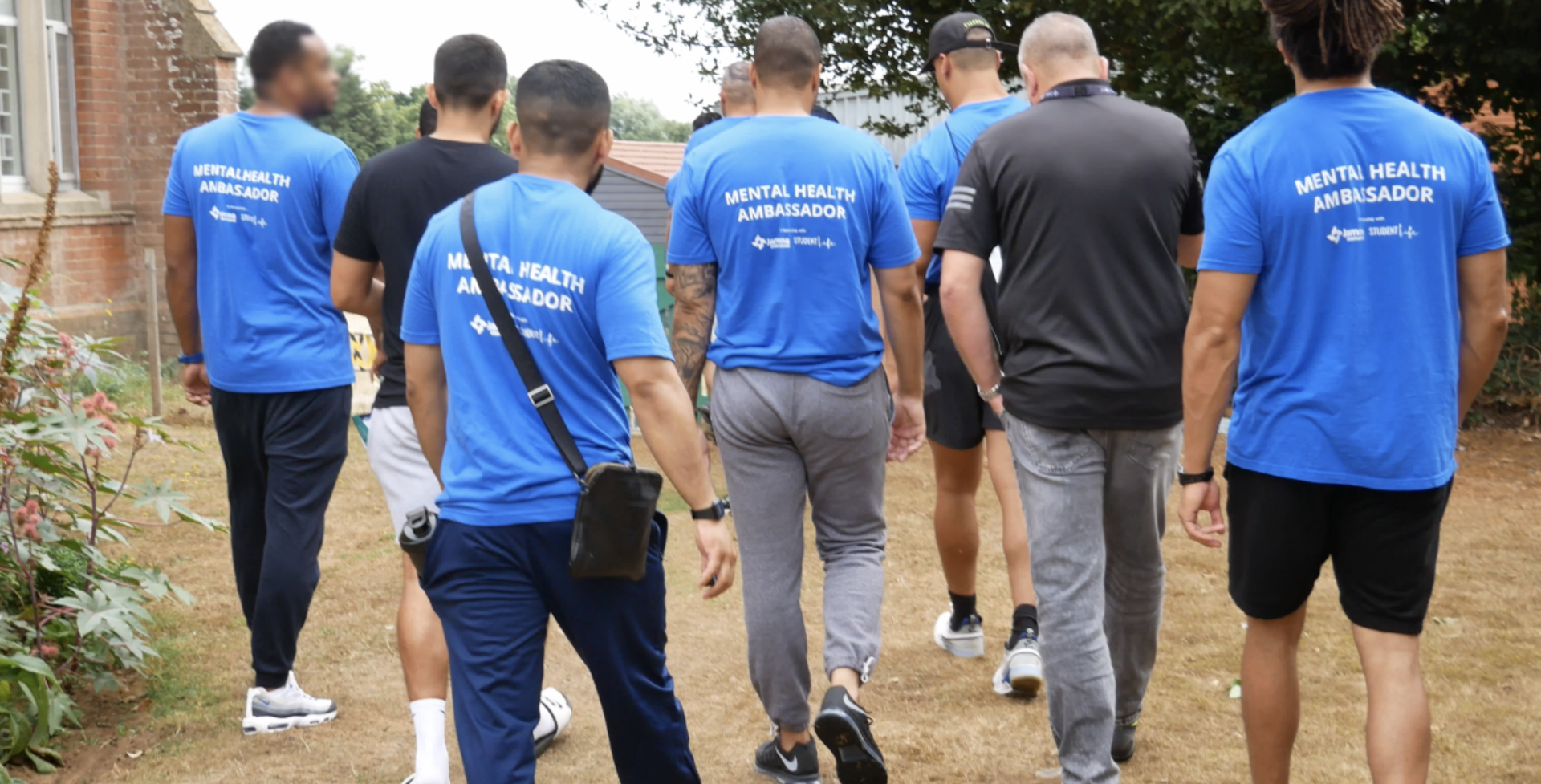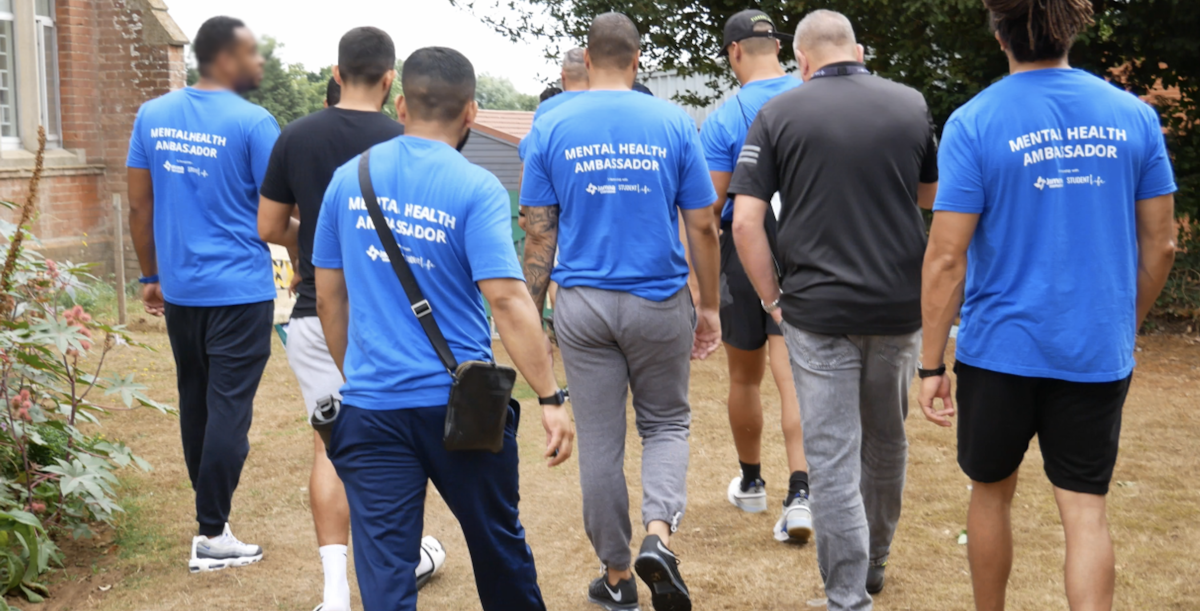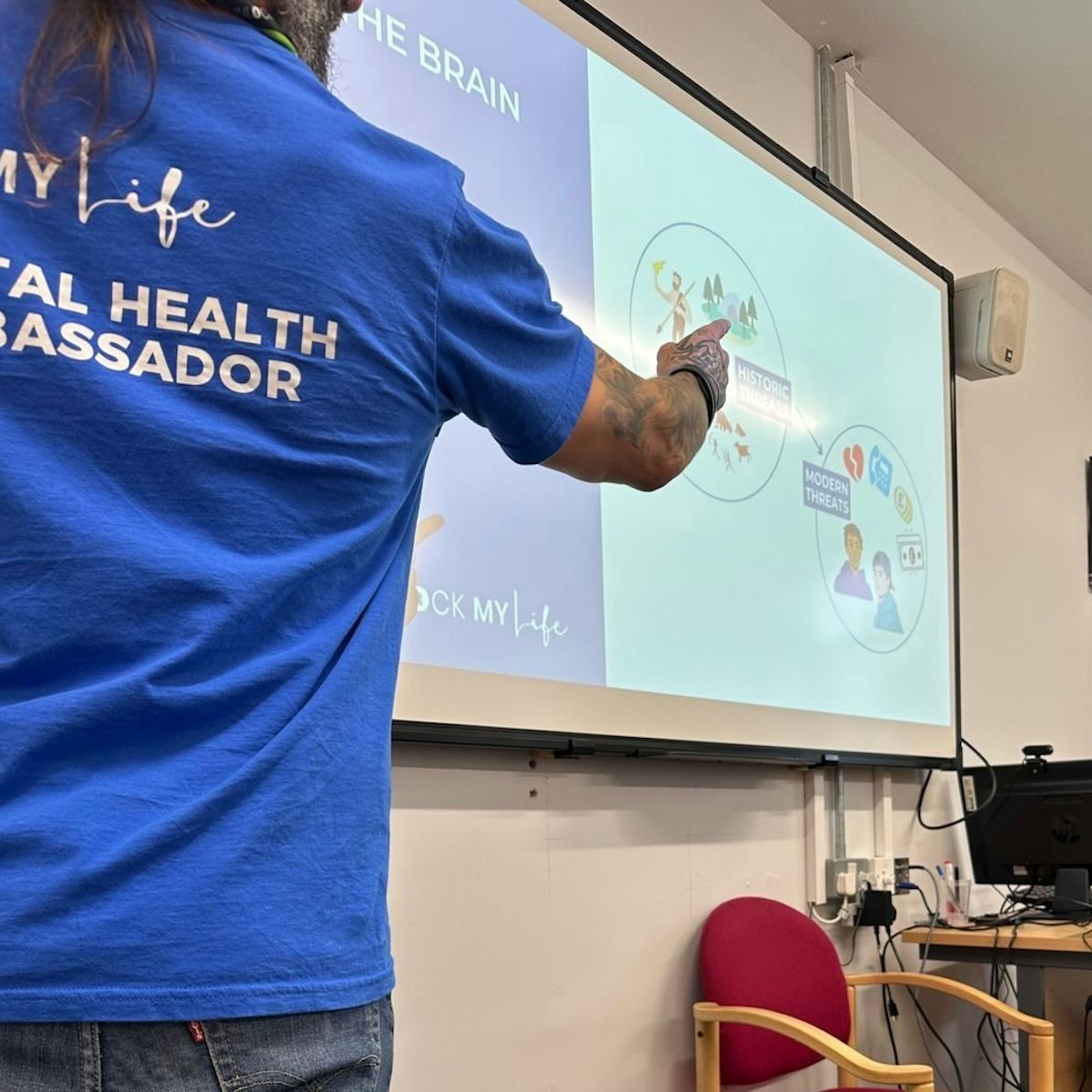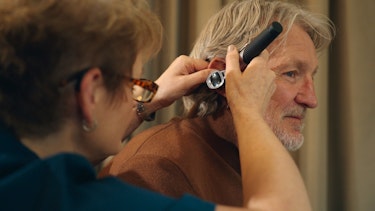
He’s still serving a life sentence, but he’s already out here – working, teaching, helping others rebuild theirs.
"This employment for me is my anchor."
One participant, who remains anonymous for privacy reasons, found something different through Unlock My Life. A job. A purpose. A future. What started as a peer-led mental health session inside HMP Hollesley Bay has now evolved into something much bigger.
What started in a Suffolk prison is now led from an unassuming office in Ipswich and is active in 32 prisons across the UK. The programme is currently funded by Jamma Wellbeing, a charity supporting mental health and wellbeing initiatives in the UK and beyond.
"I didn’t think there were going to be any opportunities for me. If I’m honest, I thought I’d come out, and that would be it."
Instead, he became part of a team delivering mental health and wellbeing support to others still inside. And he’s not alone. Unlock My Life is now a national model. It was built from the inside. That’s what makes it work.
Supporting transition, not just release
Unlock My Life began in Hollesley Bay in 2021 — a Category D prison on the Suffolk coast. It now operates across prisons nationwide, with former participants serving as instructors, project leads, and support workers. Its foundation is BrainSmart, an educational mental health programme created by Agneta Johansson, and co-developed with prisoners to make it relevant to their world.
"We’ve trained 960 prisoners and 73 instructors since we started," says Kirsty, project director. "But more than that, we’ve seen men and women change the way they see themselves."
People learn to spot their own triggers. They talk about threat mode. Fight or flight. Catastrophising. Generational trauma. Survival instincts that don’t serve them anymore.
"It’s not about saying something’s wrong with you. It’s about showing you why your brain reacts like that and how to move forward."

Understanding behaviour and identity
Participants say it helps them make sense of years of embedded habits.
"I’ve always thought like this. I’ve always acted like this. Now I know what it is. And I can use it."
The language of smart mode versus threat mode gives people a way to reframe reactions. For many, it’s the first time their behaviour has been explained in a way that actually lands.
Once trained, people can choose to become peer mental health ambassadors. Some go further, completing a Train the Trainer programme that allows them to deliver the sessions themselves. In several prisons, the course is now part of the induction process.
Chelmsford runs three courses a week. Hollesley Bay has its own on-site office. Instructors are paid. Roles are formalised. The work is recognised.
They’ve even made it easier to step up. Instructors now use a narrated video presentation, so no one has to read awkwardly from a script. Instead, they can focus on sharing real stories and building connections.
Lived experience builds trust
Unlock My Life is built on lived experience. Not corporate trainers. Not one-off volunteers. People who’ve served time. Walked the landings. Dealt with the missed visits and empty canteens.
"You don’t get that from a book."
That credibility matters. It’s what creates trust, safety and belonging. It’s not about helping people survive prison. It’s about helping them change how they move through it.
"Especially with my criminal history, I didn’t think there were opportunities for me. So to find an organisation that treats you as family, that gives you chances, that’s what makes a difference."
One participant put it simply:
"Now you’ve got something solid. You’ve seen that chance. There must be chances elsewhere."
Not just numbers — real impact
Unlock My Life now has 434 trained mental health ambassadors and 73 instructors. Nine prisons are running Train the Trainer models. Women’s prisons and foreign national facilities are beginning to take it up.
They track real outcomes through pre- and post-course feedback:
117 out of 179 participants initially understood how the brain affects behaviour. That rose to 174 after the training.
The number of people unsure about threat responses dropped from 43 to just 4.
But stats don’t tell the full story.
"My family saw the change in my face."
People come out and stay connected. Some ring on the day of release, asking to volunteer. Some are now employed by the project on a full-time basis. Others juggle paid work and ad hoc delivery.

Life after prison
Coming out of prison can be harder than surviving it.
"You come out and you’ve got nothing. No phone credit. No one checking in. You feel like you’re already behind. Like you’re a problem before you’ve even done anything."
That’s what Unlock My Life is trying to shift. Not just release. Transition.
"There’s support in prison. Structure. People to talk to. Out here, it’s easy to have nothing. That’s the gap we’re trying to fill."
For some, prison feels safer than life outside. No bills. No responsibilities. No judgement. It’s the outside that feels overwhelming.
"I didn’t know how to use a smartphone when I got out. The first iPhone came out the year I was remanded."
Unlock My Life offers something different. Continuity. Connection. A human bridge between two worlds.
A resource, not a risk
In Ipswich and across Suffolk, the challenge is growing. Recent figures show a 5.3% increase in the county’s reoffending rate, the highest rise in the UK.
"If everyone thinks it’s someone else’s responsibility to resettle, rehabilitate, reintegrate, then who’s going to do it?"
Unlock My Life doesn’t wait for permission. It acts. It sees prisoners not as problems to be managed, but people with potential. A resource. Not a risk.
"I just want to be able to leave prison and have somewhere to live. A phone. Someone I can talk to. That’s what people need."
Since launch, the team has expanded fast. Many new hires have lived experience of the criminal justice system, including several long-term prisoners who now lead delivery in multiple sites.
The idea was simple: show people they can change, and let them lead that change for others. It’s working.
"This employment for me is my anchor."
And for those still inside, it might be the start of something better.








